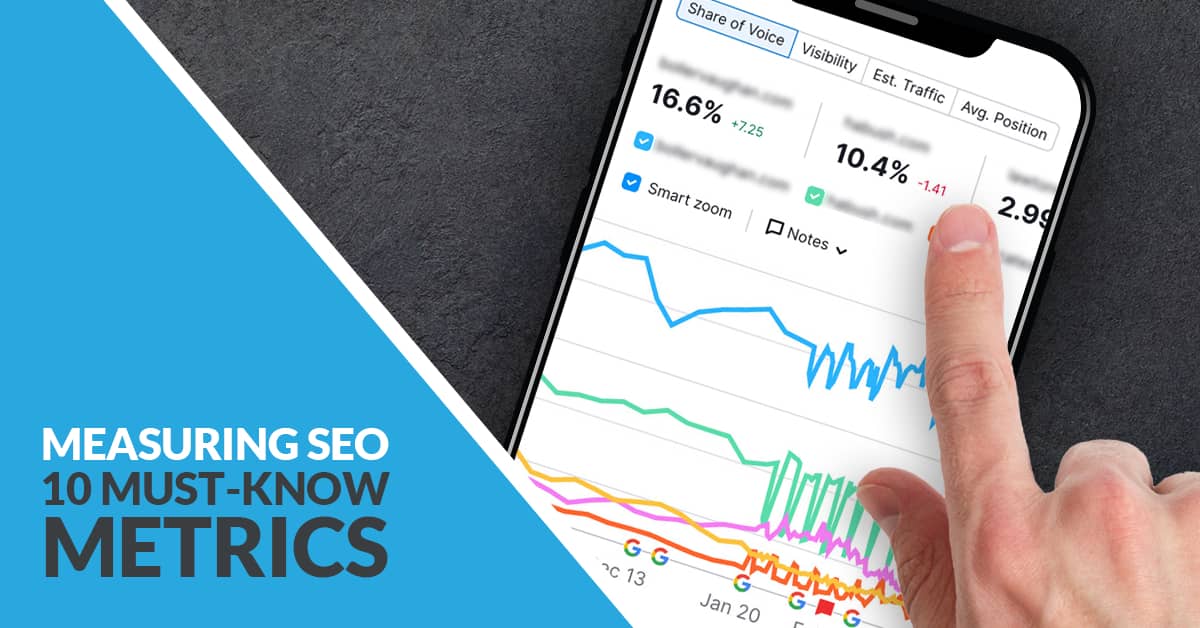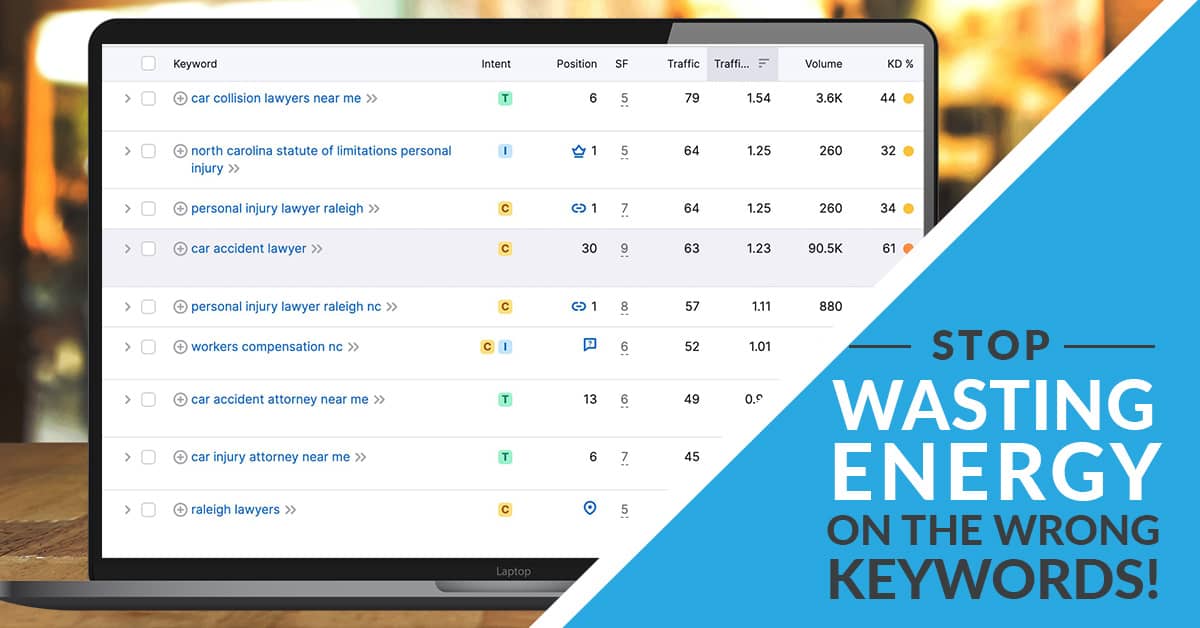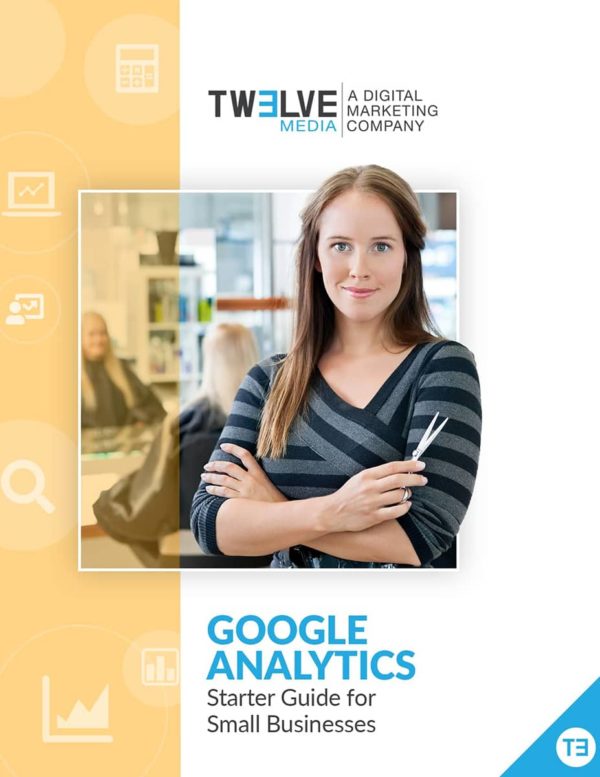Marketing analytics and reporting are essential for tracking the results of your campaigns. If your agency isn’t digging into the data and sharing the insights you need to know, you have no way of knowing if your marketing and ads are hitting your goals – let alone your ROI.
Everyone has numbers. Most business owners feel like they’re drowning in data every time they speak to marketers. The question is: Does your agency track what counts and report what you need to know?
At Twelve Three Media, we keep score and report on the metrics that matter. Our team is driven by data. We know how to precisely track the results of a wide range of campaigns and ensure that they align with your business objectives.
Too many agencies overwhelm clients with generic reporting data. Our Marketing Analytics and Reporting Experts are committed to your success, and we tailor our analysis and reporting to the insights you need to know.

How We Do
Analytics and Reporting
At Twelve Three Media, our Three Pillars of Success guide all of the marketing and advertising work we do for our clients.
Every win begins with a tactical blueprint. Before any wireframes, social posts, or ad buys, we tailor a unique strategy for market dominance.
Our ability to identify and zero-in on your ideal customer is more sophisticated than ever. We don’t gamble. We target.
Data is more than just raw, measurable information. As digital marketing professionals, it is our lifeblood. Data guides our decisions, proves our value, and validates your investment.
Analytics and reporting encompasses the all-important third pillar. Validation consists of delving into the data to determine if (a) our plan for your campaign(s) has worked and (b) the audience was properly targeted. If conditions (a) and (b) are satisfied, we expect to see results that align with the client’s business goals.
We make no assumptions in our marketing strategies and tactics. Decisions are based on hard data we freely share with our clients. Furthermore, unlike most agencies, we take the time to explain the data and put it in context so you fully understand the performance of your campaigns and how your money is being spent.
Conversion optimization is a major focus of our services. We are able to optimize marketing and advertising strategies to maximize results because we integrate analytics data into all aspects of what we do.
What Does
Analytics and Reporting Tell You?
Every campaign has a different objective. Each unique objective should be broken down into one or more KPIs. Your agency should customize reporting to fit your goals, not try to baffle you with 🐮 💩.
When investing money to market your business, it’s crucial to track and measure the success of your efforts. You need to know what’s driving your leads and how well you convert those leads into sales. If your marketing campaign decisions are not driven by data, you’re just guessing.
Data provides insights, but it demands knowledgeable interpretation to understand what the rows, columns, charts, and graphs really mean. Our team cuts through the noise to deliver real, actionable tactics for key elements of your digital strategy.

What Marketing Reports
Do I Need?
There are a host of different analytics tools and programs that report results for all kinds of digital campaigns. Unless you look forward to receiving a 100+ page marketing report every month, your agency should focus on the specific data points and results that directly relate to your goals and your bottom line.
Analytics and tracking are crucial to your marketing success. But, if you can’t pivot and adapt to what the data tells you, you’re just spinning your wheels. As a full-service digital marketing agency, we can help you implement all of our recommendations.
There are three basic types of campaigns businesses run:
- Awareness
- Nurture/Remarketing
- Direct Response
Which type of campaign you run depends on where the customer is in the buyer’s journey (top funnel, mid funnel, or bottom funnel). Each tactic has its own set of KPIs to track.
Ultimately, the reports you need depend on the marketing tactics and channels you use. Our team reports on each of the key metrics for your campaigns.
Awareness
It is important to understand that awareness campaigns do not generally result in leads and sales. Rather, the goal is to raise awareness of your brand among customers who are at the top of the funnel (i.e., those who are just starting to identify their needs and pain points).
The metrics your agency should track when it comes to awareness campaigns depend on your marketing tactics:
Search Engine Optimization (SEO)
SEO helps you raise awareness of your business through online search. Done well, users will be able to identify your business as an option as they start exploring products and services.
Key metrics for SEO awareness campaigns include:
- Organic Sessions (i.e., are you showing up in search results?)
- Local Organic Traffic (i.e., are the sessions local to your location?)
- Average Session Duration (i.e., dwell time)
- Click-Through Rate (CTR) (signals the searcher’s intent)
Social Media
Organic social media marketing is all about raising awareness of your business on the most popular platforms and building an audience. Key metrics include:
- Follower Count (i.e., the number of followers you have on a given platform)
- Reach (i.e., how many people see your posts)
- Engagement Rate (i.e., how many people interact with your posts (commenting, sharing, promoting, etc.))
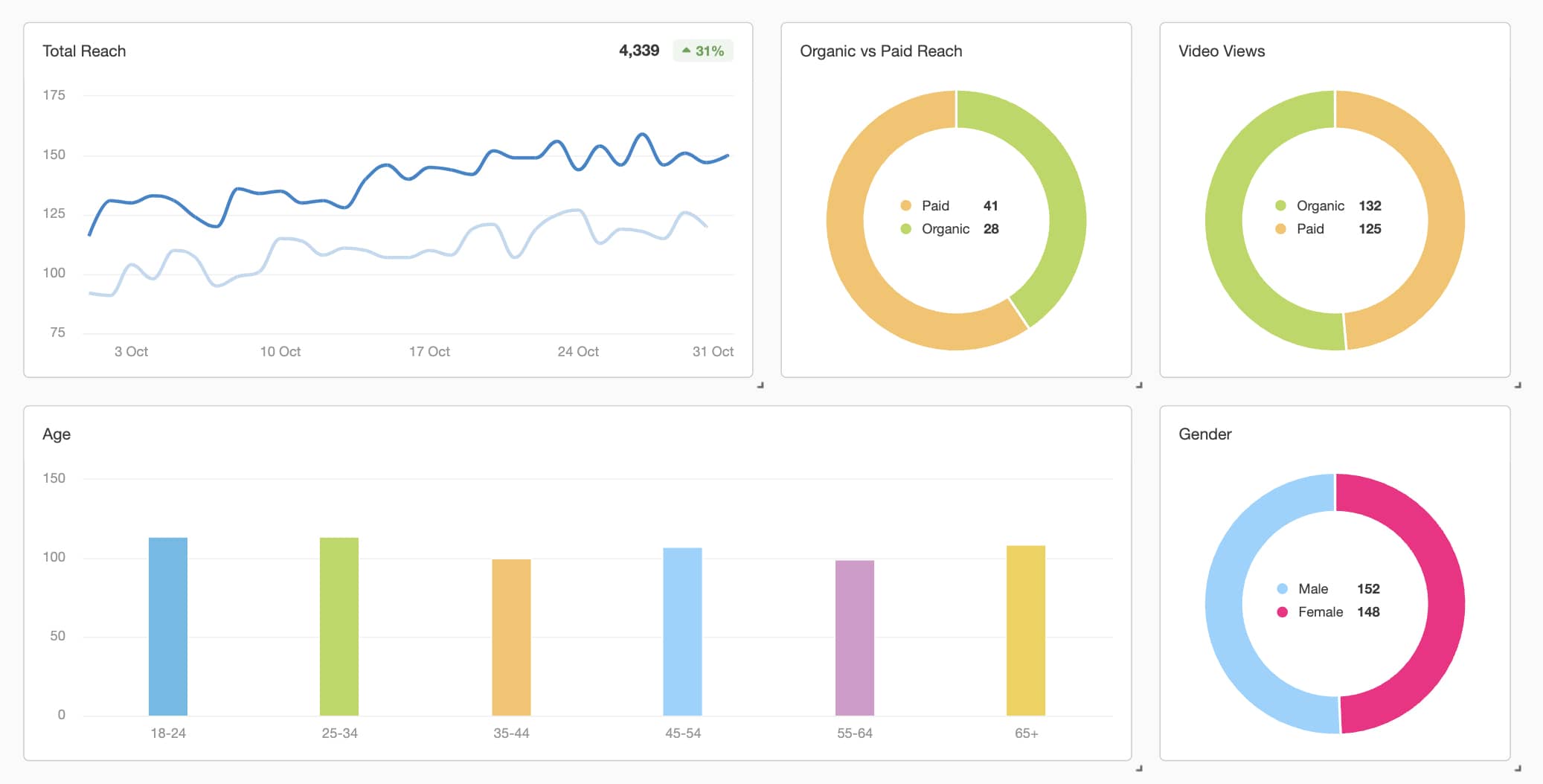
Social Media Ads
Just about everybody has at least one social media account. Despite their organic reach, the top social platforms are a pay-to-play space that demands investment to stand out from the crowd.
The following social ad campaigns can help you build awareness:
- Video Ads. Key metrics include:
- Engagement Rate Ranking (Ad relevance diagnostics analyzes your ad and rates it according to the expected engagement rate. Engagement includes all clicks, likes, comments, and shares. Your ad is ranked against ads that compete for the same audience – above average, average, or below average.)
- Reach (i.e., how many people saw your ad)
- Impressions (i.e., how many times your ad was viewed)
- Frequency (i.e., how many times on average people saw your ad; ads should not be served too frequently, as this can put off users)
- Video Completion Percentage (i.e., how much of the video users watched)
- User Location Report (i.e., where the ads were served)
- Consumer Sentiment (i.e., did the ad generate comments, and were they positive or negative)
- Demographics
- Clicks (i.e., are people interested in what you are saying?)
- CTR (i.e., if you have a click campaign, are users taking action?)
- Boosted/Promoted Posts. Organic is no longer enough to get seen on social. To earn engagement, you need to invest in reaching your audience. Key metrics include:
- Engagement Rate Ranking
- Reach
- Impressions
- Frequency
- Video Completion Percentage (if the post was a video)
- User Location Report
- Consumer Sentiment
- Demographics
- Clicks
- CTR
TV and Video Marketing Ads
Both traditional television commercials and video ads on multiple devices and platforms are great ways to raise awareness of your business. Key metrics to track awareness for video and TV campaigns include:
- Placements (i.e., where the ads ran)
- Units/Impressions (tracked by TV networks, spot cable, and online platforms like Hulu)
- Demographics
- Video Completion Percentage (digital video only)
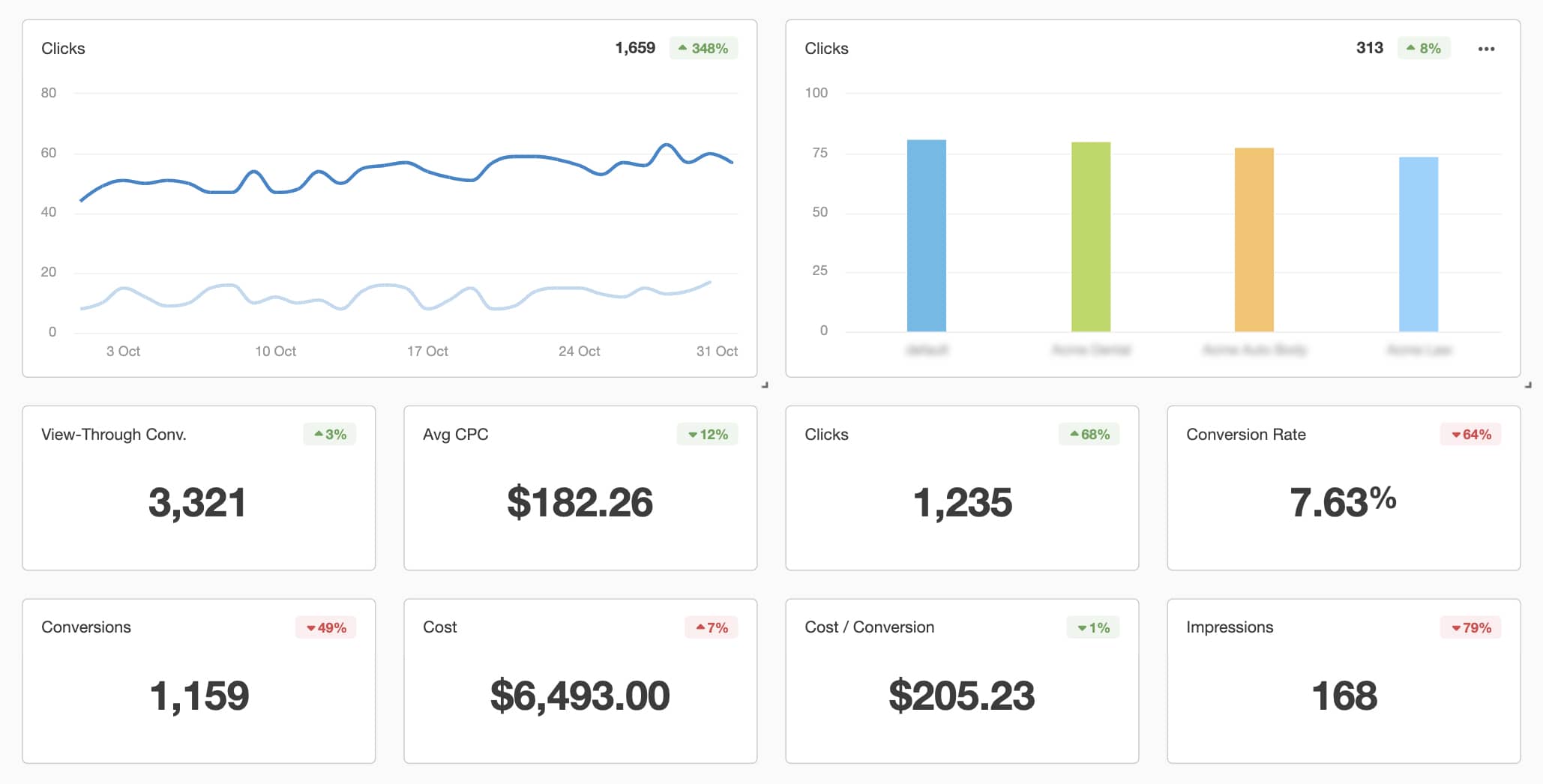
Product Marketing/Merchant Ads
Google and other platforms provide solutions for businesses to promote their products. Metrics that need to be tracked for merchant ads and product marketing campaigns include:
- Impressions
- Search Terms
- Clicks
- CTR
Email Marketing
Marketing emails are a powerful, highly effective way to raise awareness of your business. As you build your database, you should be tracking:
- Open Rate (i.e., the percentage of users who open your emails when they land in their inbox)
- Click-Through Rate (i.e., the percentage of users who clicks links embedded in the email)
- Unsubscribe/Opt-Out Rate (i.e., the percentage of users who unsubscribe from your marketing emails)
SMS Marketing
Just about everyone is glued to their cell phones. Short message service (SMS) campaigns harness the power of text messaging to make customers aware of your brand right on their favorite devices.
Key metrics for SMS marketing are:
- Open Rate
- Click-Through Rate
- Unsubscribe/Opt-Out Rate
Nurture/Remarketing
In a crowded marketplace, companies have to work to earn a potential customer’s business. Nurture campaigns are the marketing and advertising strategies designed to engage prospects when they are in the middle of the funnel. Ultimately, the goal is to nudge them toward making a purchase.
A host of digital strategies support remarketing, or getting in front of users who have engaged with your business by visiting your website, connecting with you on social media, etc. No matter the tactic or tactics you employ to nurture customers, there are multiple key metrics your agency should be reporting:
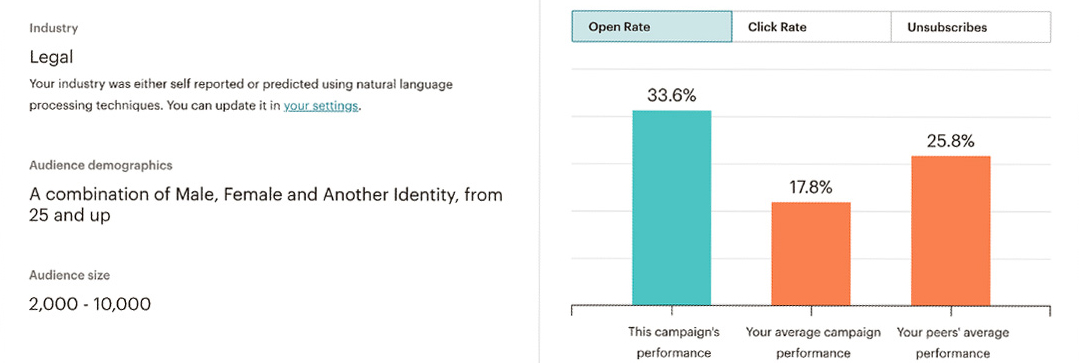
Email Marketing
Targeted emails foster a relationship and sense of connection with customers who are mid-funnel. Metrics you need to track for nurturing email campaigns include:
- Open Rate
- Click-Through Rate
- Unsubscribe/Opt-Out Rate
Social Media
Maintaining an active social media presence is perhaps the most obvious type of nurturing. Important metrics for assessing your organic marketing on social include:
- Follower Count
- Reach
- Engagement Rate (including likes, shares, comments, mentions, etc.)
- Page Growth (i.e., the growth in your audience on a particular social network over time)
Social Media Ads
Leading social media platforms include robust remarketing options. As such, social media is a core component of any digital advertising strategy that aims to nurture customers.
Metrics that need to be tracked as part of any nurture campaign using social media ads include:
- Conversion Rate Ranking (a ranking of your ad’s expected conversion rate compared to ads with the same optimization goal targeted to the same audience)
- Engagement Rate Ranking/Ad Relevance Ranking
- Reach
- Impressions
- Frequency
- Clicks
- CTR
- Leads/Sales (these signal how successful your ads are at nurturing users so they enter the bottom of the funnel)
SMS Marketing
Businesses can retarget customers on their phones with push notifications and other SMS marketing tactics to remind them about special offers, encourage customers who made a purchase to fill out surveys, and more. The most important metrics for SMS nurture campaigns include:
- Open Rate
- Click-Through Rate
- Unsubscribe/Opt-Out Rate
Direct Response
The goal of direct response marketing is to drive the audience to take a specific action. As such, direct response strategies target users at the bottom of the funnel.
Conversions and goals are at the heart of direct response marketing, but what the goals actually are varies by channel.
Pro Tip: Use standard events with pixel tracking (Google, Facebook, etc.) to get accurate insights on your direct response campaigns. Doing so will maximize the available data.

SEO
Dominating the search results isn’t just a key strategy for getting your brand recognized. Ideally it will result in leads and sales once users land on your site.
The critical metrics for SEO when it comes to conversions include:
- Organic Sessions (i.e., traffic patterns for users who visit your site via search results)
- Local Organic Traffic
- Average Session Duration
- CTR
- SALES/LEADS
Local Services Ads
Google Local Services Ads (LSAs) are a special advertising tactic that allows local businesses in select industries to serve ads to local customers. Key metrics to track include:
- Impressions
- Leads
- Phone Responsiveness
Read More: The One Metric You Don’t Know About That’s Hurting Your Local Services Ads
Text Ads
Multiple search engines use a “sponsored results” format to deliver text ads (you know them as Pay-Per-Click (PPC) Ads). Key metrics for PPC campaigns include:
- Search Terms
- Clicks
- Sales/Leads
Product/Merchant Ads
Standing out in organic search is great, but the real goal of merchant ads and product marketing is to get people to buy. The following results can help you gauge the success of your campaigns:
- Search Terms
- Clicks
- “Add to Cart” Rate
- Sales
Social Media Ads
There are multiple KPIs to track in any successful social media advertising campaign. Generally, it is best to hire an agency to handle the nitty-gritty for you. Make sure, however, that your agency reports on the following:
- Ad Relevance Ranking
- Conversion Rate Ranking
- Impressions
- Frequency
- Clicks
- CTR
- Leads/Sales
Video Ads
Before starting a video ad campaign, it is of the utmost importance to have one or more high-quality videos. It may be necessary to invest in professional video production before moving onto the campaign setup.
With quality videos in hand, you can run ads on YouTube, social media, and more. Key metrics to track for video campaigns focused on conversions include:
- Ad Relevance Ranking
- Conversion Rate Ranking
- Impressions
- Frequency
- Leads/Sales
SMS Ads
Push notifications on a customer’s mobile phone are often an effective way to “seal the deal” and make a sale. Key metrics for SMS ad campaigns at the bottom of the funnel include:
- Open Rate
- Click-Through Rate
- Unsubscribe/Opt-Out Rate
Why Choose Twelve Three Media
as Your Agency Partner?
We love data. We love digging into it, we love interpreting it, and we love converting it into strategic action.
When you work with the highly experienced digital marketing experts at Twelve Three Media, you can expect:
Honesty:
Our relationships are built on trust. Each member of our team will be forthright with you. We’ll answer your questions, address your concerns, and be upfront if we need to research something and get back to you.
Detail:
The reports we provide will include high-level information as well as the important details that matter for your business specifically.
Context:
Taken by itself, analytics data is just numbers, lines, and shapes. We put the numbers in context for you, but we also value your insights. If you see an increase in business on a particular date, we want to quantify what led to that positive result. Ideally, this will enable us to repeat the success in the future.
Diligence:
We are plugged into the conditions of your market. If you’re outperforming the competition, we look at data to understand how we can continue or improve that trend. If there is room for improvement, we analyze the metrics to see what your competitors are doing – then develop strategies so you can do better.
Efficiency:
One of the biggest reasons clients leave any agency is wastefulness. You might have had previous agencies waste your time, your money, or both. We take pride in maximizing our talent and time to give you the greatest value for your marketing dollar.
Is Your Agency Reporting
the Metrics That Matter?
In the world of digital marketing, data is the compass that guides our strategies. It must be accurate and comprehensive. Analytics and reporting doesn’t bend to unnecessary fluff or fancy jargon. It is the raw information that we interpret with focused clarity.
When reviewing your data, you need a clear picture, not a statistics lesson. At Twelve Three Media, our data fanatics dive deep into the numbers to uncover not just what visitors are doing on your website, but why.
We use industry-leading tools and honest, straightforward language to help you understand your digital results and your path to greater success.
You can’t win if you don’t keep score. Analytics and reporting compiles, organizes, and compares all relevant data in one place to capture your true marketing ROI, help you compete better in your market, and drive profitability.
Contact Twelve Three Media Now for a Free Consultation.
Put Our Expertise to Work for YouFrequently Asked Questions About Analytics and Reporting
Marketing data is any and all information that can be used to assess the performance of marketing and advertising campaigns. Analytics refers to both the study of the data as well as the platforms used to monitor the success of the strategies.
Important analytics data includes (but may not be limited to) the following KPIs:
- Keyword rankings
- Website traffic
- Ad impressions
- Cost per click
- Ad spend
- Cost per conversion
- Reviews and ratings
- Leads (including phone calls, emails, etc.)
The most basic, most essential analytics tool any business or agency should have is Google Analytics. Google Analytics is free, and it includes a robust suite of reports you can use to drill down on the users who visit your website.
Although anyone can use Google Analytics, the platform exemplifies the saying “easy to learn, hard to master.” Major changes are also coming to the platform, with the new Google Analytics 4 taking over from the old Universal Analytics starting July 2023.
You will also likely need analytics tools that measure keyword rankings, a business account on Facebook and other social media platforms to run ad campaigns, and more. Bottom line: You need analytics for every marketing and advertising strategy you implement. Generally, it is best to partner with a reputable agency that can analyze data and track results for you.
There are many different kinds of marketing reports. What reports your agency sends you depends on what kind of marketing you do and what types of ad campaigns you’re running.
Basic types of marketing reports include:
- SEO keyword ranking reports
- Website traffic reports
- Ad spend, ad impressions, CPC, and other digital ad campaign reports
- Social media activity reports
- Email marketing reports
- Video engagement and sentiment reports
- Post-by analysis reports for TV ads (i.e., the dates and times ads are broadcast)
- Calls and other lead tracking reports
If you don’t get reports on your marketing and advertising, how do you know if your campaigns are working? This simple question underlies the exact reason your agency should provide you with thorough reporting. If you don’t get regular reports or the reports and/or the agency doesn’t answer your questions, it’s time to find a partner who cares about your success.
Furthermore, marketing reporting is only valuable if the information is personalized to the needs and goals of your business. Reporting templates might provide a lot of information, but there’s a strong likelihood that the insights are generic and not focused on your objectives.
Ad relevance diagnostics is a feature in Facebook that provides advertisers with valuable insights on the perceived quality of an ad. Facebook assesses quality through analysis of the user experience when they click on your ads, as well as other user feedback. The relevance ranking is determined by comparing your ad against ads run by other businesses targeting the same audience.
Facebook will rank your ad according to its estimated relative performance in the ad auction:
- Above Average (top 55% of ads)
- Average (35% to 55% of ads)
- Below Average:
- Bottom 35% of ads
- Bottom 20% of ads
- Bottom 10% of ads
If your ads are consistently rated below average, Facebook will often penalize the advertiser (i.e, ads are shown less often or they are charged a premium). Advertisers who get consistently high scores for ad relevance rankings, meanwhile, tend to be rewarded with more frequent ad servings and lower costs.
Conversion rate ranking is a metric used by Facebook to evaluate your ad’s expected conversion rate. It measures the probability that users will take the desired action (known as the optimization goal) compared to ads competing for the same audience.
Facebook will rank the conversion rate on your ad based on how it is expected to perform in the ad auction relative to similar ads:
- Above Average (top 55% of ads)
- Average (35% to 55% of ads)
- Below Average:
- Bottom 35% of ads
- Bottom 20% of ads
- Bottom 10% of ads
It is important to note that Facebook ads with fewer than 500 impressions for the given time period do not qualify for conversion rate ranking.
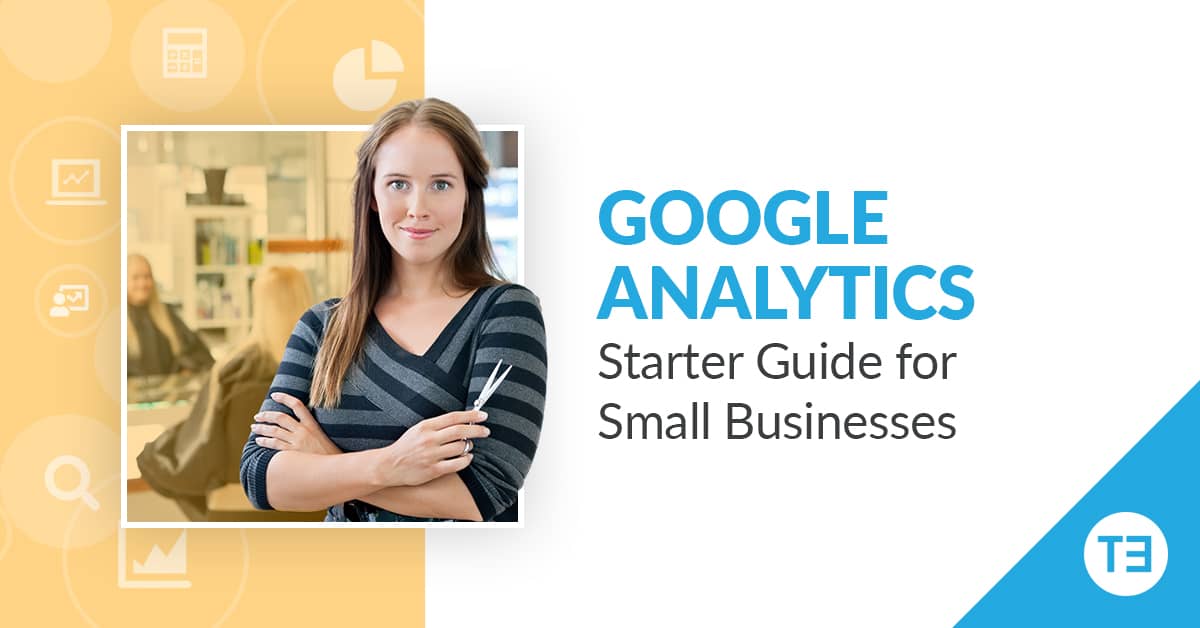
Google Analytics for Small Businesses – The Starter Guide
FREE!In this introductory guide to Tracking Performance, our industry experts explain the basics of Google Analytics, Google Search Console, organic performance, and paid services.
We Love to Share
Industry Insider Info.
If you want to learn how the experts track analytics, we’re here to teach you. In our secret-spilling DIY guide, we’ll show you how the pros track marketing ROI, organic reach, and keyword rankings. We’ll teach you everything you need to know about Google Analytics, Google Search Console, and more.
Level Up Now